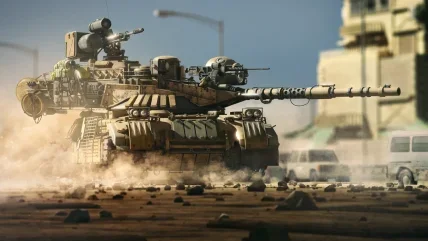
Iran and its opponents are engaging in asymmetric warfare, warns Harlen Bell, chief of
terrorism intelligence at 5 Stones intelligence. The situation is set to expand if hostilities
go unchecked, quickly moving into the financial sector.
Asymmetric warfare can be described as war prosecuted by a weaker power against a stronger power that has such forces and resources that a conventional war is impossible. However, the weaker power can often exploit democratic self-restraint, changing political and economic fortunes, and internal dissent within the stronger state. These constraints have also spawned an interest in the
use of asymmetric warfare among stronger powers.
Forces that a stronger power often calls “terrorists” are, sometimes, the weaker power in an asymmetric struggle. The weaker power cannot match the stronger power in terms of raw force, and therefore must offset its deficiencies by avoiding head-to-head combat, striking at the enemy’s weaknesses and using the element of surprise. In the struggle with jihadi Islamists, the weaker power has
generally eschewed direct combat in Iraq and Afghanistan and chosen to use IEDs and suicide attacks. In the event of hostilities with Iran, the naval mine and the proxy actor (in other words, a force that may claim responsibility for an action but is really the glove over the hand of the true aggressor) would be the likely manifestations of asymmetric warfare.
Assessing the risk
5 Stones intelligence believes that Iran and its opponents have engaged in asymmetric warfare, and is actively involved in developing related forecast models and indicators for its clients. The company maintains that the key to forecasting possible attacks in strategic asymmetric warfare is to examine the characteristics possessed by the West that provide opportunities for surprise and – more importantly – the weaknesses that present an irresistible window for opponents to strike a potentially mortal blow. 5 Stones intelligence is of the opinion that a conjunction of possible Western and Israeli action against Iranian nuclear weapon deployment
with the financial crisis in the West may be causing the initiation of asymmetric warfare.
The current economic weakness of the West is having a tangible effect on ending American prosecution of the wars in Iraq and Afghanistan. In addition to the decline in popular support for these military undertakings, the simple fact is that the West can no longer afford them. 5 Stones intelligence believes that asymmetric warfare will dictate that all future operations against the West will have either a direct or indirect goal of harming economies of the states targeted. This is in keeping with the logic of striking at an enemy’s weakness and reinforcing success.
The company also expects to see proxy forces used to hide the identity of aggressor states; Iran is likely to use Hezbollah and al-Qaeda remnants resident inside the country. This could very well lead to a resurgence of jihad operations that are ostensibly carried out by al-Qaeda, but actually instigated and funded by Iran. Intelligence indicators reflect that Iran and its allies may soon seek an opportunity to hasten a collapse of Western economies through financial warfare: this ranges from the nationalisation of key assets in Venezuela and Bolivia, to the manipulation of Iran’s official commerce, currency and formal banking networks through informal black market financial channels, effectively avoiding US sanctions. Iran has proven equally astute, whether it is directing IEDs or
navigating commercial transactions.
Accelerating escalation
Iranian plans to field nuclear weapons have exposed the country to asymmetric warfare, and signs of a covert struggle in this arena abound. Several assassinations, kidnappings and defections of Iranian researchers and members of the Islamic Revolutionary Guards Corp (IRGC) have occurred in the past few years. There have been cyber-attacks on the Iranian nuclear programme using the Stuxnet worm and Duqu malware, and in October 2011, US authorities alleged that the Iranian regime was linked to a plot to assassinate
the Saudi ambassador to Washington. The impending International Atomic Energy Agency report on the Iranian nuclear weapons programme seems to have accelerated the pace of asymmetric operations. On 12 November 2011, explosions at an IRGC missile facility killed a senior IRGC general and 16 others. On the same day, the son of Mohsen Rezai – the head of the Iranian Expediency Council, 2009 presidential candidate and former IRGC chief commander – was found dead in a hotel in Dubai.
On 13 November, Bahrain’s public prosecutor claimed that a terror cell planning to attack high-profile targets in the country had links to Iran. Iran is in a position to do great harm to the West by closing the Persian Gulf, and using al-Qaeda (actual or affiliated) and other jihadi proxies to threaten oil production in Saudi Arabia, Bahrain, Yemen and Nigeria. Iranian allies such as Venezuela should be expected to respond positively to any calls for an oil embargo. Iran may rightly believe that the Western economies cannot survive a doubling of crude oil prices.
For further information, please visit www.5stonesintelligence.com.



